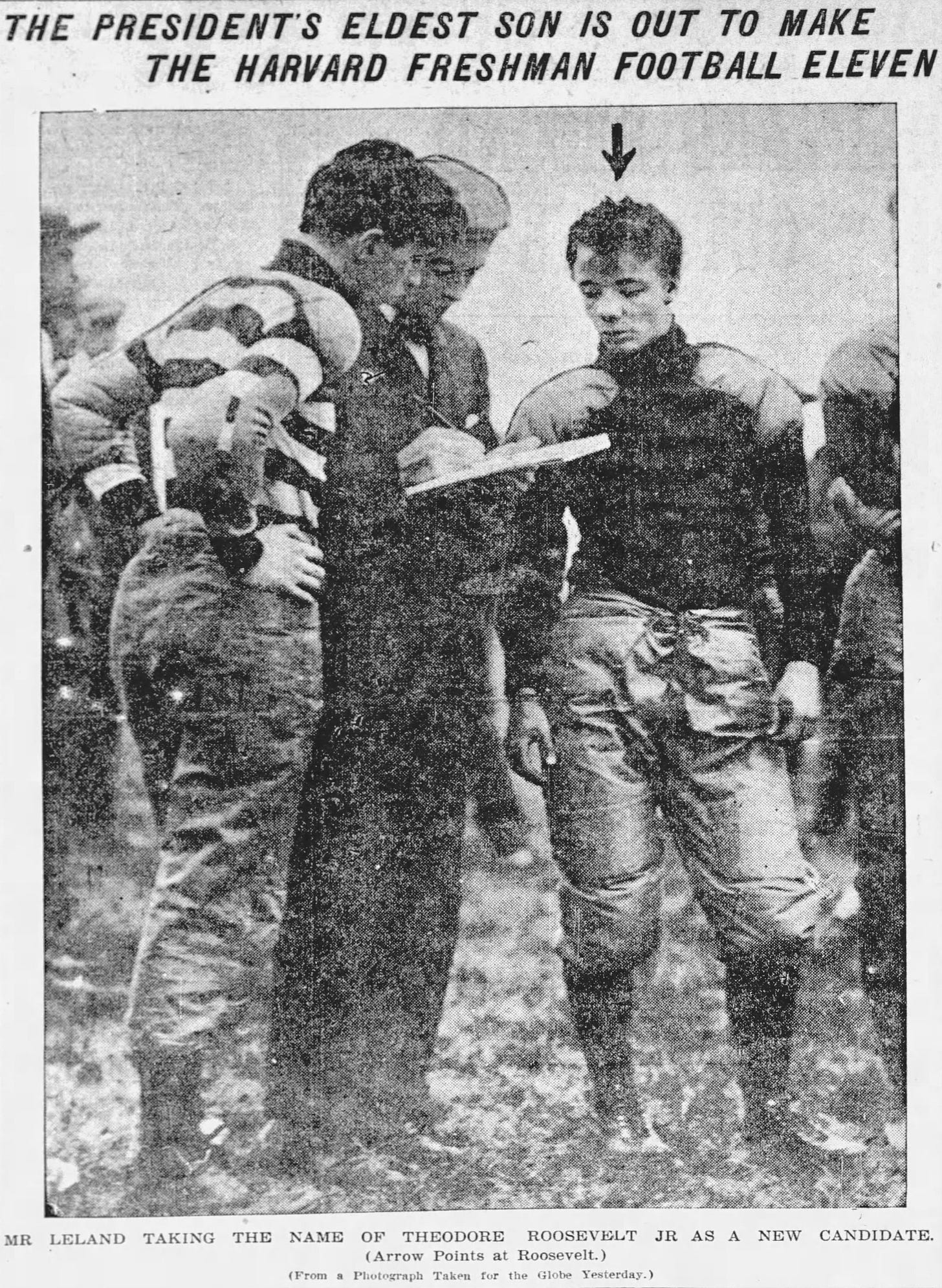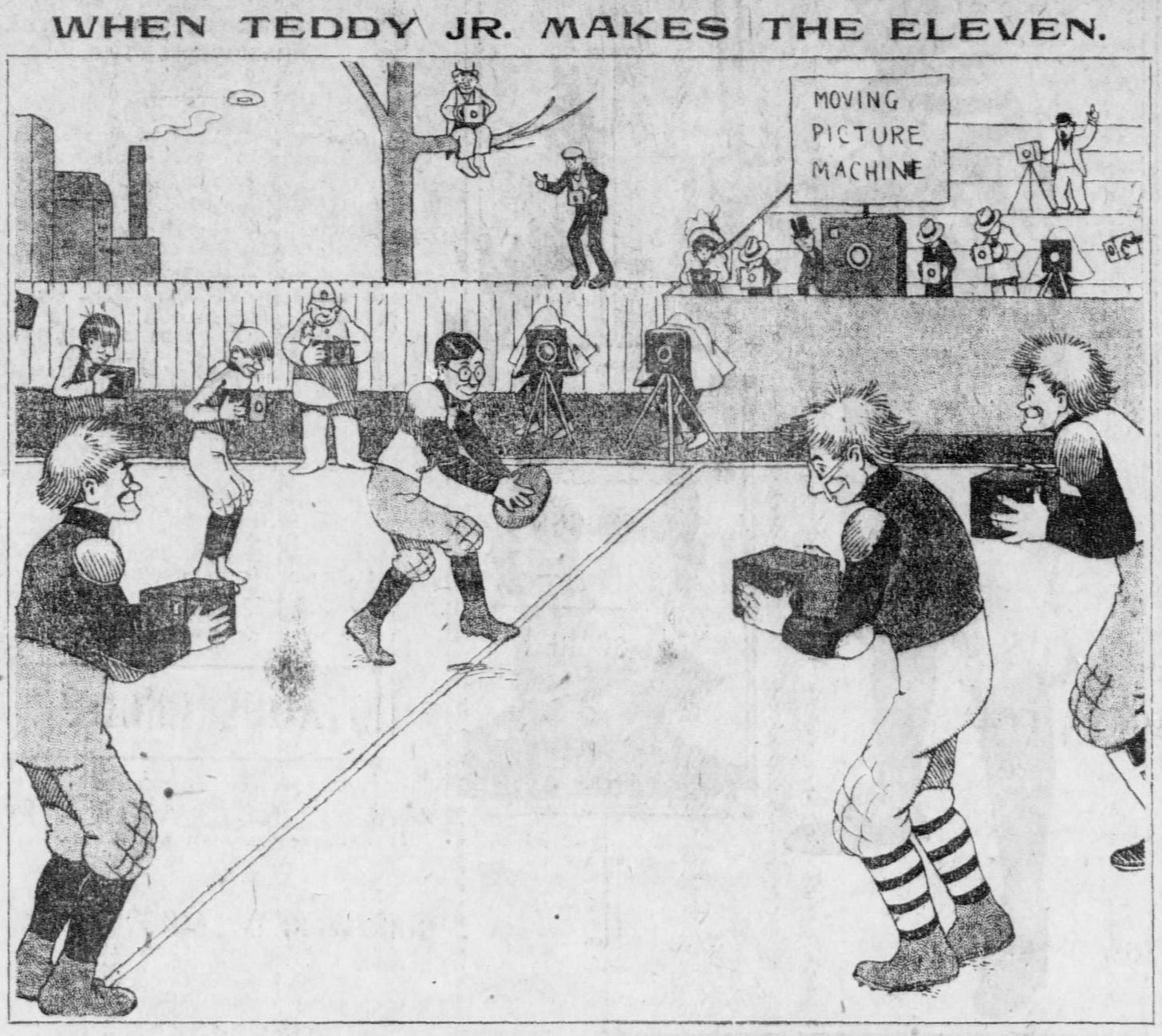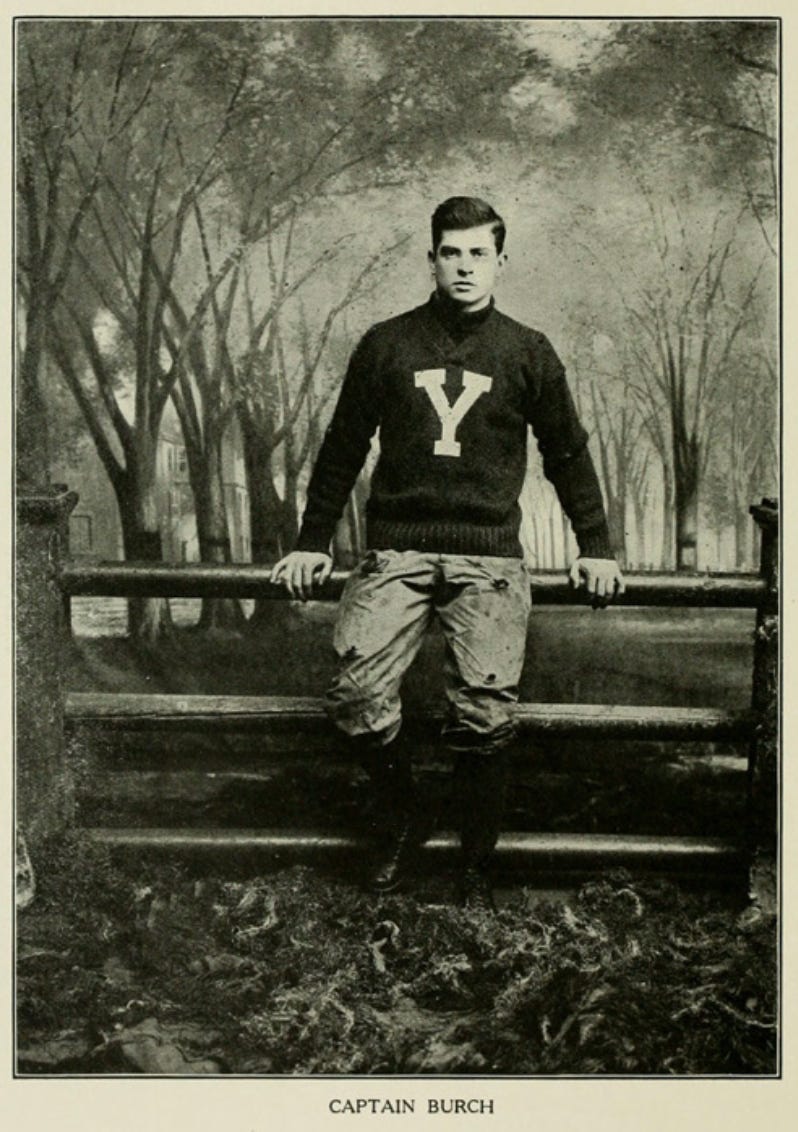Today's Tidbit... Travis, Taylor, and Teddy Roosevelt III
The exploits of certain football players are sometimes magnified by their relationships with people off the playing field. We've all witnessed that during the 2023 NFL season with Travis Kelce and his good friend Taylor Swift. Taylor Swift, who needs no introduction to a few billion people, does not need the attention of associating with Kelce, but it comes with the territory she and Travel choose to ride in.
Football has seen similar situations, including in 1905 when Teddy Roosevelt III played for Harvard's freshman team. Often referred to as Teddy Roosevelt, Jr., Young Teddy was the oldest child of his father's second marriage. (Roosevelt's first marriage ended when his wife, Alice Lee Roosevelt, died two days after giving birth to a healthy girl.)
When Young Teddy entered Harvard in 1905, his dad was President of the United States, and that put some pressure on the boy, particularly after he decided to go out for football. Standing 5' 8" and weighing less than 145 pounds, Roosevelt was not the prototypical football player even in 1905. He played on the second team at Groton, but having put on a few pounds and gained more aggressiveness at Harvard, he became the starting left end on the Crimson freshmen team.

Brief reports flashed across the telegraph wire each week of the season, letting the world know how Harvard's freshmen team and Young Teddy performed. An article describing his performance against Worcester Academy told of him being undersized but playing valiantly, including a touchdown-saving tackle in which he knocked the wind out of the runner. (Young Teddy supposedly broke his nose during the game as well.) The same article noted the attention he received, yet his willingness to endure it gracefully.
Since coming to Cambridge young Roosevelt has been vexed and annoyed tremendously by interviewers and photographers who have waylaid him at his lodgings, in the street and on the football field. That he has preserved even temper through it all is marvelous. but no one as yet has seen him give way to annoyance.
'Teddy, Jr., Plays Football,' Kansas City Star, November 9, 1905.

The attention became more intense with the approach of the season-ending game with Yale, played a week before the varsity match. The Yale players tried repositioning themselves to play right end so they could oppose Young Teddy's left end position, but those honors went to Bob Burch, Yale's regular freshman right end who would captain the varsity three years later.
Given all the attention, Roosevelt played well in the game. Yale regularly ran over his position, more because Burch was on that side than Young Teddy. Despite playing against the backdrop of his father challenging the game's power brokers to make the game safer, Roosevelt acquitted himself well, earning praise from Yale's coach and Bob Burch for his efforts, despite leaving the field five minutes before the game ended exhausted and suffering from another nose injury.
Young Teddy returned from hunting in the West with his Dad for several weeks and reported for football practice his sophomore year but was deemed too light to make the squad. The following year, he pursued a position on the team once again until a twisted knee suffered in practice put an end to his playing career.
After graduating, he served in military, government, and business roles during his career. His military duties included serving as a battalion commander in France during WWI and returning to France in 1944 with the first wave on D-Day. Recommended for the DSC, he died two weeks later of a heart attack, and his award was upgraded to the Congressional Medal of Honor.
Football Archaeology is reader-supported. Click here to buy one of my books or otherwise support the site.


